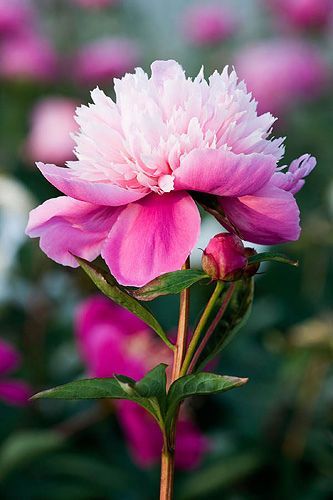Organic Approaches to Managing Peony Garden Diseases
Keeping your peony garden healthy and vibrant requires proactive management of common diseases that can affect these beautiful blooms. Organic methods offer effective solutions for controlling diseases while minimizing harm to beneficial organisms and the environment. By implementing holistic strategies and natural remedies, you can maintain a thriving peony garden without relying on synthetic chemicals. Here are some organic approaches to managing peony garden diseases:










1. Cultural Practices for Disease Prevention
- Site Selection: Choose a well-drained location with good air circulation for planting peonies to reduce the risk of fungal diseases such as botrytis blight and powdery mildew.
- Soil Health: Maintain soil fertility and structure by incorporating organic amendments such as compost or well-rotted manure. Healthy soil supports strong root development and enhances plant resilience to diseases.
- Spacing: Plant peonies with adequate spacing between individual plants to minimize overcrowding and improve air circulation, reducing the risk of foliar diseases.
2. Sanitation Measures
- Pruning: Remove and dispose of any infected or diseased plant parts promptly to prevent the spread of pathogens. Prune peonies in late fall or early spring, removing dead or diseased foliage and stems.
- Fall Cleanup: Clean up fallen leaves and plant debris from the garden bed in the fall to eliminate overwintering sites for disease-causing organisms.
- Tool Disinfection: Sterilize pruning tools and equipment between uses with a solution of 1 part household bleach to 9 parts water to prevent cross-contamination between plants.
3. Biological Controls
- Beneficial Microorganisms: Apply beneficial microorganisms such as mycorrhizal fungi or compost tea to the soil to enhance plant health and suppress soil-borne pathogens.
- Microbial Insecticides: Use microbial insecticides containing Bacillus thuringiensis (Bt) to control caterpillar pests such as leaf rollers and budworms without harming beneficial insects.
4. Natural Remedies for Disease Management
- Neem Oil Spray: Apply neem oil spray to peony foliage to control fungal diseases such as powdery mildew and botrytis blight. Neem oil acts as a natural fungicide and insecticide, disrupting the lifecycle of pathogens and pests.
- Sulfur Dust: Dust peony foliage with elemental sulfur to control powdery mildew and other fungal diseases. Sulfur works by inhibiting fungal spore germination and growth on plant surfaces.
- Copper-Based Fungicides: Use copper-based fungicides as a preventive measure against fungal diseases such as leaf spots and blights. Apply according to label instructions and avoid excessive use to prevent copper buildup in the soil.
Conclusion
Managing peony garden diseases with organic methods involves a holistic approach that focuses on prevention, sanitation, and natural remedies. By implementing cultural practices to promote plant health, practicing good sanitation measures, incorporating biological controls, and using natural remedies such as neem oil, sulfur, and copper-based fungicides, you can effectively control diseases while maintaining a healthy and resilient peony garden. Embrace organic gardening practices to nurture your peonies and enjoy their beauty for years to come.
FAQs (Frequently Asked Questions)
- Can I use organic methods to control peony diseases in container gardens?
- Yes, organic methods can be used to control peony diseases in container gardens as well. Implement cultural practices such as proper spacing, soil health maintenance, and sanitation measures, and use natural remedies such as neem oil spray or sulfur dust to manage diseases effectively.
- How often should I apply organic fungicides to my peonies?
- The frequency of application depends on factors such as weather conditions, disease pressure, and the efficacy of the fungicide. Follow the instructions on the product label for specific application rates and intervals, and reapply as needed to maintain disease control.